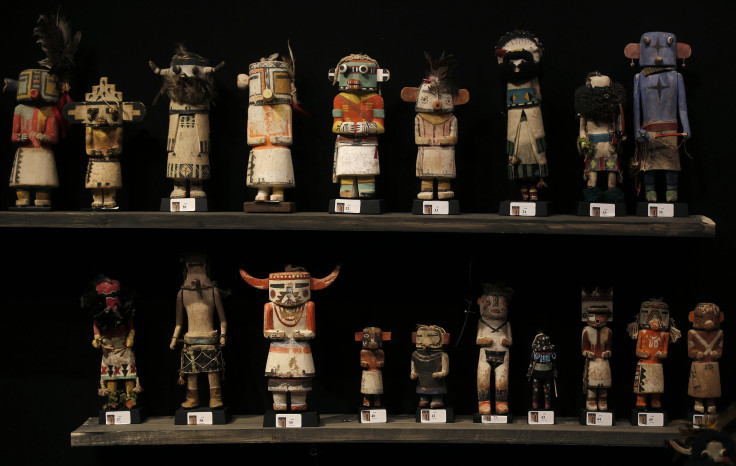Native Americans Protest Planned Auction Of Sacred Objects In France

Native American leaders are reportedly protesting a plan by a Paris auction house to sell off part of their tribal history, reports the Associated Press. The Smithsonian's National Museum of the American Indian held an emergency meeting with tribal officials, the State Department and Bureau of Indian Affairs Tuesday.
Hundreds of religious items and art pieces from the Americas, Africa and Asia are scheduled to go up for bidding Monday at Paris' EVE auction house. The Paris auctions have been a diplomatic issue for years between the United States and France, where U.S. laws prohibiting the sale of Native American ceremonial items hold no weight.
Museum spokesperson Eileen Maxwell reportedly said, “It drives us to tears. It's that upsetting,” adding, “It's very frustrating that there is no legal recourse now.”
The items up for sale reportedly include a Plains war shirt made with hair from human scalps and sacred Hopi objects that resemble masks and are considered to be living beings by the tribe. An Acoma Pueblo ceremonial shield, ancient jewelry and effigies linked to the Hohokam, who once inhabited part of present-day Arizona, are also up for bidding.
Acoma Pueblo Gov. Kurt Riley sent a letter to Secretary of State John Kerry and others urging them to “make every effort” to intervene in the auction.
“How it left the pueblo, we don't know. However, its mere existence outside the pueblo tells us an event occurred in violation of Acoma law,” Riley said, in an emotional appeal at Tuesday’s meeting. "A black market for these cultural items has emerged in the United States."
The Native American demand for the return of their ceremonial objects is getting bipartisan support.
U.S. Rep. Steve Pearce, a New Mexico Republican, has proposed congressional resolution urging federal agencies to seek their return. Pearce has also reportedly called for a study to examine how often these kinds of cultural items fall into the hands of traffickers on the black market.
A lawyer for the pueblo said tribal officials are also trying to arrange a meeting or conversation with the French government and are relying on U.S. officials to facilitate.
© Copyright IBTimes 2025. All rights reserved.






















